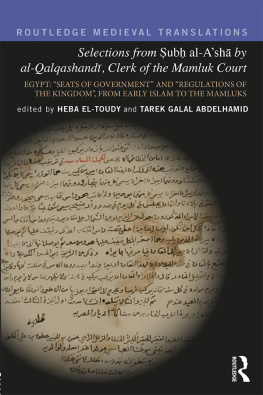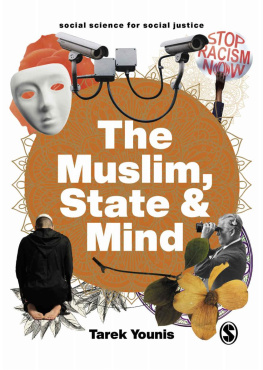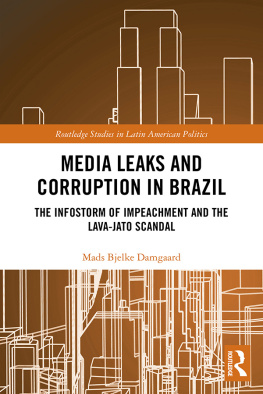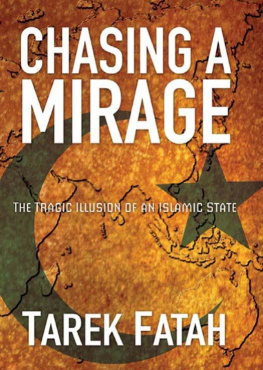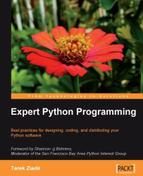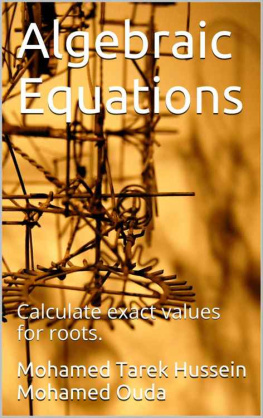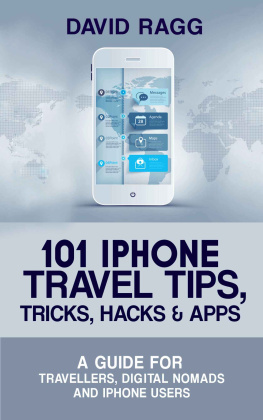El-Ariss Tarek - Leaks, hacks, and scandals: Arab culture in the digital age
Here you can read online El-Ariss Tarek - Leaks, hacks, and scandals: Arab culture in the digital age full text of the book (entire story) in english for free. Download pdf and epub, get meaning, cover and reviews about this ebook. City: Oxford;Princeton, year: 2019;2018, publisher: Princeton University Press, genre: Politics. Description of the work, (preface) as well as reviews are available. Best literature library LitArk.com created for fans of good reading and offers a wide selection of genres:
Romance novel
Science fiction
Adventure
Detective
Science
History
Home and family
Prose
Art
Politics
Computer
Non-fiction
Religion
Business
Children
Humor
Choose a favorite category and find really read worthwhile books. Enjoy immersion in the world of imagination, feel the emotions of the characters or learn something new for yourself, make an fascinating discovery.

- Book:Leaks, hacks, and scandals: Arab culture in the digital age
- Author:
- Publisher:Princeton University Press
- Genre:
- Year:2019;2018
- City:Oxford;Princeton
- Rating:4 / 5
- Favourites:Add to favourites
- Your mark:
- 80
- 1
- 2
- 3
- 4
- 5
Leaks, hacks, and scandals: Arab culture in the digital age: summary, description and annotation
We offer to read an annotation, description, summary or preface (depends on what the author of the book "Leaks, hacks, and scandals: Arab culture in the digital age" wrote himself). If you haven't found the necessary information about the book — write in the comments, we will try to find it.
Leaks, hacks, and scandals: Arab culture in the digital age — read online for free the complete book (whole text) full work
Below is the text of the book, divided by pages. System saving the place of the last page read, allows you to conveniently read the book "Leaks, hacks, and scandals: Arab culture in the digital age" online for free, without having to search again every time where you left off. Put a bookmark, and you can go to the page where you finished reading at any time.
Font size:
Interval:
Bookmark:
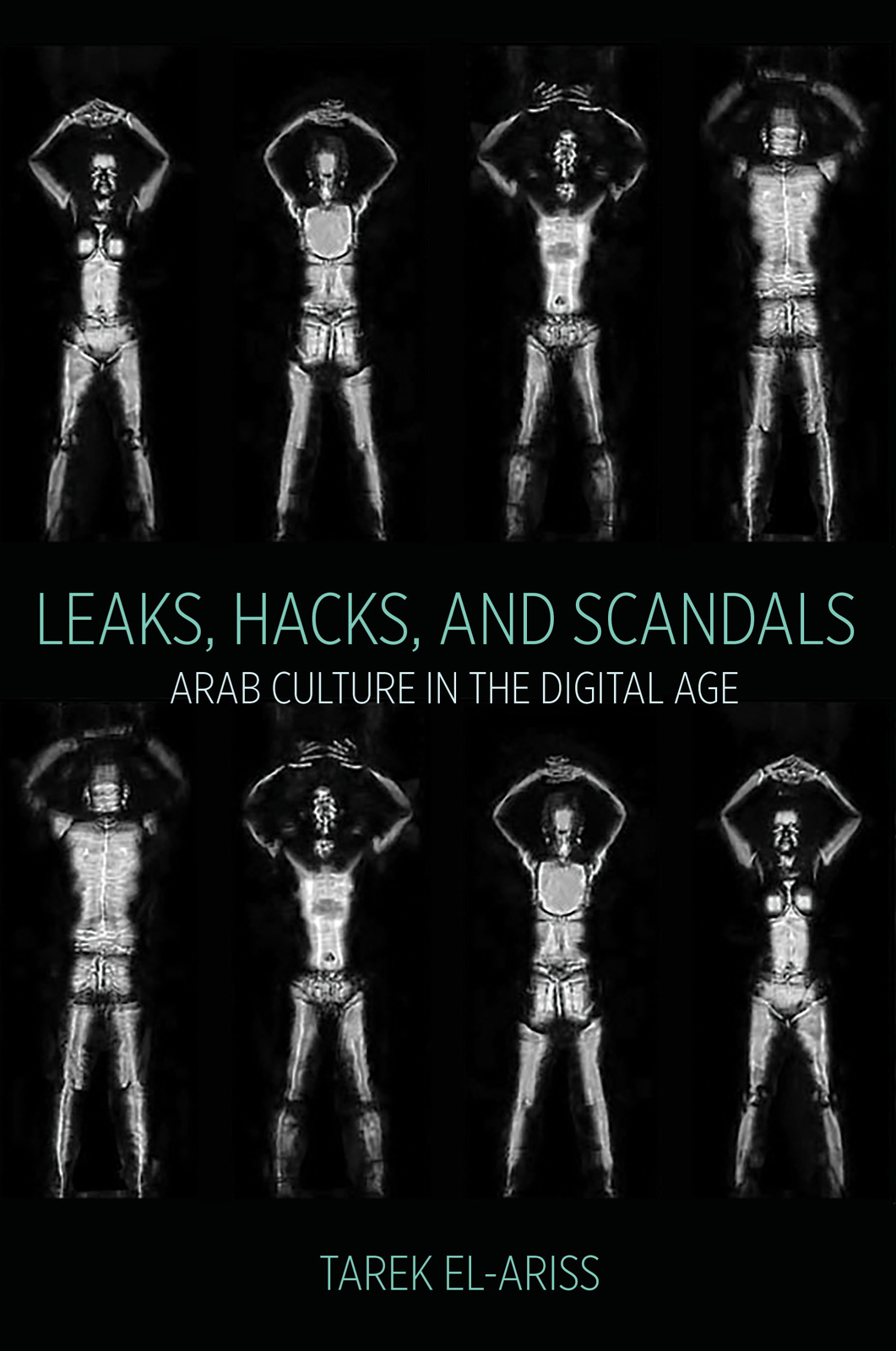
Leaks, Hacks, and Scandals

SERIES EDITOR EMILY APTER
A list of titles in the series appears at the back of the book.
ARAB CULTURE IN THE DIGITAL AGE
Tarek El-Ariss
PRINCETON UNIVERSITY PRESS
PRINCETON AND OXFORD
Copyright 2019 by Princeton University Press
Published by Princeton University Press
41 William Street, Princeton, New Jersey 08540
6 Oxford Street, Woodstock, Oxfordshire OX20 1TR
press.princeton.edu
All Rights Reserved
Library of Congress Control Number 2018952194
ISBN 978-0-691-18192-9
ISBN (pbk.) 978-0-691-18193-6
eISBN: 978-0-691-18491-3 (ebook)
Version 1.0
British Library Cataloging-in-Publication Data is available
Editorial: Anne Savarese & Thalia Leaf
Production Editorial: Ali Parrington
Text and Jacket/Cover Design: Leslie Flis
Production: Erin Suydam
Copyeditor: Aimee Anderson
In Memory of Barbara Harlow (19482017)
In the idea of the rou there is thus an allusion to debauchery and perversity, to the subversive disrespect for principles, norms, and good manners, for the rules and laws that govern the circle of decent, self-respecting people, of respectable, right-thinking society. Rou characterizes a leading astray [dvoiement] that calls for exclusion or punishment. The rou is thus indeed a sort of voyou, in this sense, but since a whole gang of voyous lies in wait for us a little further down the road, lets put them off a bit longer. The libertine rous of the Regency described by Saint-Simon are the debauched members of a good, decent monarchic society on the road [voie] to corruption. They thus announce in their own way the decadence of the monarchic principle and, from afar, by way of a revolution and a beheading, a certain democratization of sovereignty. For democracy, the passage to democracy, democratization, will have always been associated with license, with taking too many liberties [trop-de-libert], with the dissoluteness of the libertine, with liberalism, indeed perversion and delinquency, with malfeasance, with failing to live according to the law, with the notion that everything is allowed, that anything goes.
Jacques Derrida, Rogues: Two Essays on Reason
To write the scandal of the speaking body, to speak the scandal of seduction, that which grounds, in my view, the literary order, the theoretical order, and the historical order in turn, to do this here will thus mean attempting to articulate something at the crossroads of several disciplines (the point where psychoanalysis, linguistics, philosophy, literature, etc., meet and fail to meet ) and at the crossroads of language (where English and French, or theoretical language and literary, rhetorical language, meet and fail to meet); attempting to articulate not so much what is said or could be said but what is happening, taking effect, producing acts, what is being done or could be done between speaking bodies, between languages, between knowledge and pleasure.
Shoshana Felman, The Scandal of the Speaking Body
xi
xv
The research for this book started in the late nineties when I became interested in new Arabic writing and the effects of new media and communication technologies on culture and politics in the region. When the Arab uprisings erupted in 2010, I was in the process of completing my first book, Trials of Arab Modernity. Once completed, I moved from the affects of modernity to digital affects, from the body of the disoriented Arab traveler in nineteenth-century Europe to Arab bodies making a scene and shaming dictatorial regimes in squares, on streets, and online. This led me to explore exposure, scene making, and leaks, tracing a genealogy in Arabic writing, communication, and critique of power starting in the classical period. While my first book ended with the euphoria we were all experiencing at the start of the uprisings, this book confronts the violent and unsettling state that has engulfed the region since then. Such confrontation made writing this book all the more difficult, if not painful at times, requiring much support and encouragement that I would like to acknowledge here.
I thank Transnation/Translation series editor Emily Apter for taking on this project and for believing in its potential after hearing my mal-leve talk, The Leaking Subject, at the Sorbonne in 2015. Her vision and mentorship over the years showed the way for intellectual risk taking and academic rigor. Im grateful to Princeton University Press and Anne Savarese, Thalia Leaf, Ali Parrington, Stephanie Roja, Aimee Anderson, and all those at the press for their hard work on this project.
The institutional support I received over the years was key to researching and writing this book. My gratitude goes to Europe in the Middle East/Middle East in Europe (EUME) and the Forum for Transregional Studies in Berlin for providing me a fellowship in 20122013 that allowed me to lay the books foundations. Im particularly grateful to Georges Khalil, Friederike Pannewick, Angelika Neuwirth, Barbara Winckler, and Christian Junge. I also thank the American Council for Learned Societies (ACLS); the fellowship they awarded me in 20152016 allowed me to complete the manuscript. I thank the College of Liberal Arts at the University of Texas at Austin, which made accepting these fellowships possible. Im also grateful to Dennis Washburn, Associate Dean for International Studies and Interdisciplinary Programs at Dartmouth College for supporting this books production. I would like to thank the Journal of ArabicLiterature (JAL) for publishing an earlier version of as Fiction of Scandal, and Georges Khalil and Friederike Pannewick for reprinting it in their anthology Commitment and Beyond: Reflections on/of the Political in Arabic Literature since the 1940s, and Tarik Sabry and Layal Ftouni for including a subsequent version of this essay in their anthology Arab Subcultures: Transformations in Theory and Practice.
In Austin, my deepest gratitude goes to Kristen Brustad and Mahmoud al-Batal: their culture of care and pioneering spirit created an opening that moved students and scholars of Arabic into a new dimension from which there is no turning back. Im also grateful to have found in Austin the beautiful and brilliant Yoav Di-Capua, my friend and intellectual companion, who will be with me always. Together we thought freely and radically, crossing disciplines, genres, and traditions, and together we were able to foster an intellectual community and train students who are now leaving their mark on the field. I also would like to thank my Austin colleagues Kamran Ali, Benjamin Brower, Tracie Matysik, Judith Coffin, Kathleen Stewart, Ann Cvetkovich, Peter Rehberg, Neville Hoad, Samy Ayoub, Hannah Wojciehowski, Joseph Straubhaar, Elizabeth Richmond-Garza, Mia Carter, Brian Dougherty, and Blake Atwood for their support and engagement.
At Dartmouth, my new home, Im grateful for the friendship and support of Jonathan Smolin; his vision and determination inspires and moves mountains. Im also grateful to Susannah Heschel, whose brilliance and energy makes me want to think deeper and do more. I also thank Graziella Paratti, Michelle Warren, Gerd Gemunden, Silvia Spita, Barbara Wil, Bruce Duthu, Elizabeth Smith, Lynn Higgins, Kevin Reinhardt, Chad Elias, yasser alhariri, Jessica Smolin, Michelle Warren, Klaus Milich, Katherine Hornstein, Victor Witowski, Keith Walker, David LaGuardia, Nirvana Tanoukhi, and Eman Morsi for their warm welcome and support.
Font size:
Interval:
Bookmark:
Similar books «Leaks, hacks, and scandals: Arab culture in the digital age»
Look at similar books to Leaks, hacks, and scandals: Arab culture in the digital age. We have selected literature similar in name and meaning in the hope of providing readers with more options to find new, interesting, not yet read works.
Discussion, reviews of the book Leaks, hacks, and scandals: Arab culture in the digital age and just readers' own opinions. Leave your comments, write what you think about the work, its meaning or the main characters. Specify what exactly you liked and what you didn't like, and why you think so.

